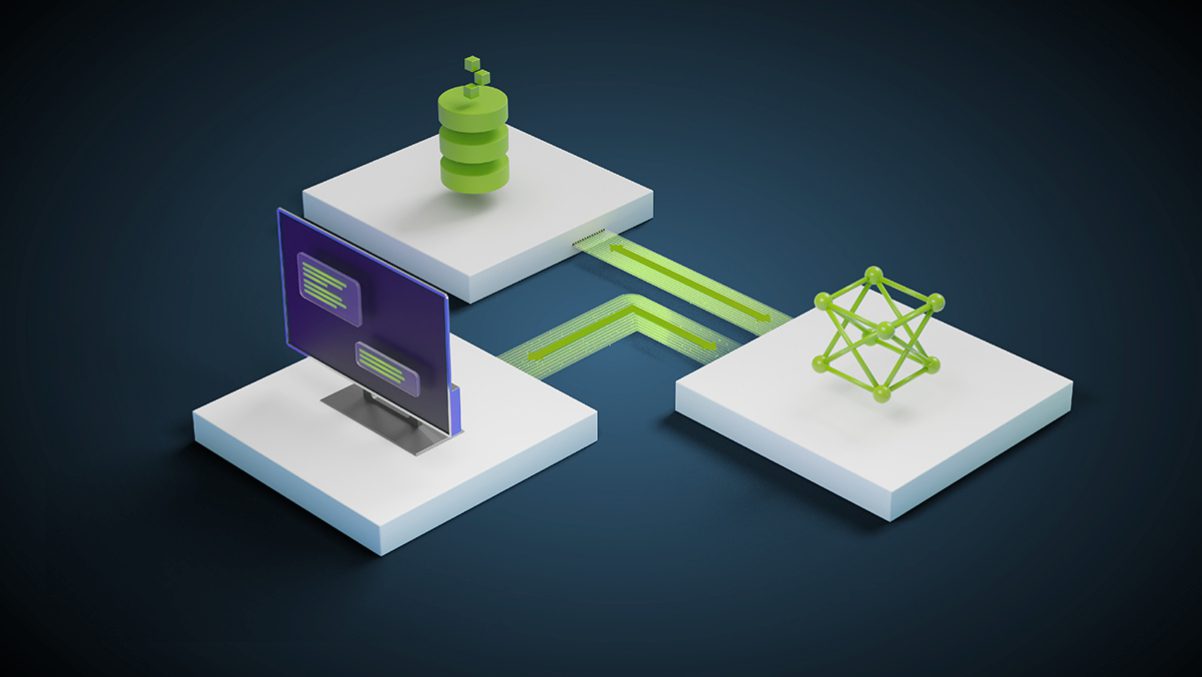
Introduction
With great pleasure, we will explore the intriguing topic related to Nvidia: The AI and Gaming Solution That’s Making Your Business More Successful. Let’s weave interesting information and offer fresh perspectives to the readers.
Table of Content
- 1 Introduction
- 2 The Nvidia Revolution: More Than Just Graphics Cards
- 2.1 From Pixels to Predictions: The AI Powerhouse
- 2.1.1 Healthcare: Diagnosing Diseases with AI-Powered Precision
- 2.1.2 Finance: Predicting Market Trends and Reducing Risk
- 2.1.2.1 Manufacturing: Optimizing Processes and Improving Efficiency
- 2.1.2.2 Autonomous Vehicles: The Road to Self-Driving Cars
- 2.1.2.2.1 The Gaming Connection: A Synergistic Advantage
- 2.2 Addressing the Counterarguments: Challenges and Limitations
- 2.2.3 The Future of Nvidia: Continued Innovation and Expansion
- 2.2.3.3 Conclusion: Embracing the Nvidia Advantage
- 3 FAQs
- 4 Closure
Nvidia: The AI and Gaming Solution That’s Making Your Business More Successful
The Nvidia Revolution: More Than Just Graphics Cards
Remember the days when Nvidia was primarily known for its high-performance graphics cards, powering the gaming world? Those days are rapidly fading into the rearview mirror. While gaming remains a significant part of Nvidia’s success, the company has strategically positioned itself as a dominant force in the burgeoning field of artificial intelligence (AI). This dual focus – gaming and AI – isn’t just a coincidence; it’s a masterstroke that’s transforming businesses across numerous sectors. Think about it: the computational power needed to render realistic graphics in cutting-edge games is remarkably similar to the power required for complex AI tasks like deep learning and machine learning. This synergy is at the heart of Nvidia’s current success, and it’s a story worth exploring in detail. We’ll delve into the specific ways Nvidia’s technology is revolutionizing industries, from healthcare and finance to manufacturing and autonomous vehicles. We’ll also consider the potential challenges and counterarguments, painting a comprehensive picture of this technological powerhouse’s impact on the modern business landscape. Get ready to discover how Nvidia is not just enhancing your gaming experience, but also quietly powering the future of your business.
From Pixels to Predictions: The AI Powerhouse
Nvidia’s GPUs, originally designed for rendering stunning visuals, have proven surprisingly adept at parallel processing – the ability to perform many calculations simultaneously. This is precisely what’s needed for AI algorithms, which thrive on massive datasets and complex computations. Imagine trying to analyze millions of medical images to detect cancerous cells, or processing terabytes of financial data to predict market trends. These tasks are computationally intensive, demanding the kind of horsepower that Nvidia’s GPUs deliver in spades. This unexpected application of gaming technology has propelled Nvidia into the forefront of the AI revolution, making them a key player in the development of everything from self-driving cars to sophisticated medical diagnostic tools. Their CUDA parallel computing platform has become the industry standard, making it easier for developers to harness the power of their GPUs for AI applications. The impact is undeniable: businesses are leveraging this technology to gain unprecedented insights, automate processes, and ultimately, boost their bottom line. But how exactly is this happening across various sectors? Let’s dive deeper.
Healthcare: Diagnosing Diseases with AI-Powered Precision
The healthcare industry is undergoing a dramatic transformation, fueled by the advancements in AI. Nvidia’s GPUs are at the heart of many of these advancements, enabling faster and more accurate diagnoses. Radiologists, for instance, can now use AI-powered tools trained on massive datasets of medical images to detect subtle anomalies that might be missed by the human eye. Imagine a system that can analyze thousands of X-rays in minutes, flagging potential cancers or other critical conditions with remarkable accuracy. This not only improves patient outcomes but also streamlines workflows, allowing healthcare professionals to focus on more complex cases. This isn’t science fiction; it’s happening right now, thanks in part to Nvidia’s technology. The potential for AI-powered diagnostics is immense, promising a future where diseases are detected and treated earlier and more effectively. The ethical considerations, of course, are equally important and warrant ongoing discussion. However, the potential benefits are simply too significant to ignore.
Finance: Predicting Market Trends and Reducing Risk
The financial world is another area where Nvidia’s technology is making a significant impact. High-frequency trading, algorithmic trading, and fraud detection are all areas where the speed and power of Nvidia’s GPUs are proving invaluable. Imagine a system capable of analyzing vast amounts of market data in real-time, identifying patterns and predicting trends with greater accuracy than ever before. This gives financial institutions a significant edge, allowing them to make smarter investment decisions and manage risk more effectively. However, this also raises concerns about algorithmic bias and the potential for market manipulation. It’s a complex issue, requiring careful regulation and ethical considerations. The use of AI in finance is a double-edged sword, offering immense potential for growth but also presenting significant challenges that need to be addressed responsibly.
Manufacturing: Optimizing Processes and Improving Efficiency
Manufacturing is undergoing a similar transformation, with AI playing a key role in optimizing processes and improving efficiency. Nvidia’s technology is being used to develop predictive maintenance systems, which can analyze sensor data from machines to predict potential failures before they occur. This prevents costly downtime and improves overall productivity. Imagine a factory where machines are constantly monitored, with AI algorithms predicting potential issues and alerting maintenance crews before a problem arises. This proactive approach minimizes disruptions and maximizes efficiency, leading to significant cost savings and improved product quality. This application of AI is not just about saving money; it’s about building a more resilient and efficient manufacturing ecosystem. The benefits extend beyond cost savings, encompassing improved safety and a reduced environmental footprint.
Autonomous Vehicles: The Road to Self-Driving Cars
The development of autonomous vehicles is arguably one of the most ambitious applications of AI, and Nvidia is playing a leading role. Their GPUs are used to process the vast amounts of sensor data required for self-driving cars to navigate safely and efficiently. Imagine a car that can perceive its surroundings, make decisions in real-time, and navigate complex traffic situations without human intervention. This is no longer a distant dream; it’s rapidly becoming a reality, thanks to advancements in AI and the computational power provided by Nvidia’s technology. However, the ethical and safety implications of self-driving cars are significant and require careful consideration. Issues such as accident liability, data privacy, and the potential for job displacement need to be addressed proactively.
The Gaming Connection: A Synergistic Advantage
It’s crucial to remember that Nvidia’s success in AI is intrinsically linked to its success in gaming. The relentless pursuit of better graphics and more immersive gaming experiences has driven innovation in GPU technology, creating the very foundation upon which their AI dominance is built. The development of faster, more efficient GPUs for gaming has directly translated into more powerful tools for AI research and development. This synergistic relationship is a testament to Nvidia’s strategic foresight and its ability to leverage existing technologies for new and exciting applications. This is a powerful example of how seemingly disparate fields can converge to create groundbreaking innovations.
Addressing the Counterarguments: Challenges and Limitations

While Nvidia’s impact on various industries is undeniable, it’s important to acknowledge potential counterarguments and limitations. One major concern is the environmental impact of the energy-intensive nature of AI computations. The power consumption of high-performance GPUs can be substantial, raising concerns about carbon emissions. Nvidia is actively working on more energy-efficient solutions, but this remains a significant challenge. Furthermore, the ethical implications of AI are far-reaching and require careful consideration. Issues such as bias in algorithms, job displacement, and the potential misuse of AI technology need to be addressed proactively. These are not trivial concerns; they are critical issues that must be addressed alongside the technological advancements.
The Future of Nvidia: Continued Innovation and Expansion
Nvidia’s future looks bright. The company is well-positioned to capitalize on the continued growth of the AI market, with ongoing investments in research and development. Their focus on expanding into new markets and developing innovative solutions will likely solidify their position as a leader in the technology industry. The convergence of AI and gaming will continue to drive innovation, creating exciting opportunities for businesses and consumers alike. However, the company must also address the ethical and environmental concerns associated with AI technology to ensure its long-term sustainability and positive impact on society.
Conclusion: Embracing the Nvidia Advantage
Nvidia is more than just a graphics card manufacturer; it’s a technology powerhouse shaping the future of various industries. From healthcare and finance to manufacturing and autonomous vehicles, Nvidia’s technology is driving innovation and transforming the way businesses operate. While challenges remain, the potential benefits are immense. Embracing Nvidia’s solutions can provide businesses with a significant competitive advantage, enabling them to improve efficiency, reduce costs, and unlock new opportunities. The future of business is inextricably linked to the advancements in AI, and Nvidia is at the forefront of this revolution. The question isn’t whether to embrace this technology, but how to do so responsibly and ethically.
The journey ahead is filled with both exciting possibilities and significant challenges. The responsible development and deployment of AI are paramount, requiring collaboration between industry leaders, policymakers, and researchers. Nvidia’s role in this journey is crucial, and their continued commitment to innovation and ethical considerations will determine their long-term success and impact on the world.
FAQs
- What are the main applications of Nvidia’s technology in business? Nvidia’s GPUs power AI applications across various sectors, including healthcare (medical imaging analysis), finance (high-frequency trading), manufacturing (predictive maintenance), and autonomous vehicles (sensor data processing).
- How does Nvidia’s gaming technology contribute to its AI capabilities? The parallel processing power developed for rendering high-quality graphics in games is directly applicable to the computationally intensive tasks of AI algorithms.
- What are the ethical considerations surrounding Nvidia’s AI technology? Ethical concerns include algorithmic bias, job displacement, data privacy, and the potential misuse of AI for malicious purposes.
- What are the environmental implications of using Nvidia’s high-performance GPUs? The high energy consumption of these GPUs raises concerns about carbon emissions, necessitating the development of more energy-efficient solutions.
- What is Nvidia’s future outlook in the AI market? Nvidia is well-positioned for continued growth in the AI market, driven by ongoing innovation and expansion into new sectors. However, responsible development and ethical considerations will be key to their long-term success.

Closure
In conclusion, we hope this article has provided valuable insights into Nvidia: The AI and Gaming Solution That’s Making Your Business More Successful. We appreciate your readership and engagement. See you in our next article!